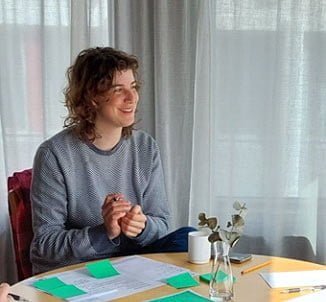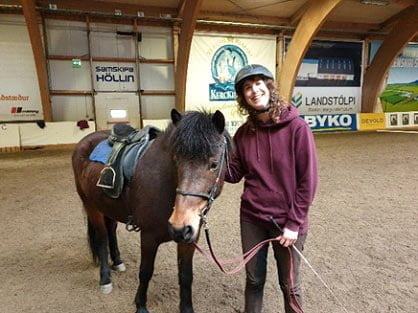Dynamics of digital innovation for tourism entrepreneurs in rural Iceland
Magdalena Falter, PhD student of Tourism Studies at the University of Iceland
Description of project
Magdalena Falter, PhD student of Tourism Studies at the University of Iceland, recieved a grant in 2019 for her research “Dynamics of digital innovation for tourism entrepeneurs in rural Iceland”. In the following text, Magdalena introduces briefly her research project.
We got her to tell us briefly about her project.
This paper explores digital innovation and entrepreneurial dynamics in rural Iceland It provides knowledge about the status and the value of digital innovation for rural tourism entrepreneurs in Iceland and investigates if and how digital innovation becomes meaningful to them. Apart from answering the question of ‘what is going on the ground’, it describes the level of involvement of rural tourism businesses in innovation and digital applications. Despite the discussions about smart tourism and the necessity of digital innovation in the global tourism industry, the study revealed that innovation and digitalization are not necessarily interrelated in the understanding of the rural Icelandic tourism entrepreneurs. This exploratory research follows a qualitative methodology based on 34 semi-structured interviews with rural tourism entrepreneurs in Iceland. The study adds both practical and scientific value to the body of literature by contributing to gaining understanding about the missing link between policy and practice.

The goal with my research was to get an overview and insights into ‘what is going on the ground’ regarding digital innovation in Icelandic tourism. As in most of the Nordic countries, micro, small and medium-sized tourism businesses are number-wise dominant in the industry. Hence, my aim was to explore how these smaller businesses perceive and understand the current digital development in tourism. For that, I conducted interviews with tourism entrepreneurs all around Iceland. About 25% of my interviews I carried out with tourism entrepreneurs in South Iceland. Having insights into how tourism practitioners understand and implement current trends is an important step towards sustainable tourism development.
The paper is finished and published in the academic journal Academica Turistica.
Interesting outcomes

My research revealed hints that there might be a gap of understanding between tourism practitioners and tourism authorities, which can possibly affect the communication between the stakeholder groups. Tourism entrepreneurs in Iceland do not form a uniform group but consist of a wide range of different types of entrepreneurs with different business intentions. While some of them are motivated by a certain lifestyle, others are driven by economic growth intentions. When exploring if and for whom digital innovation in Icelandic tourism can become valuable, I figured out that mainly those entrepreneurs with growth intentions saw benefits in automation, smart tourism, and digitized service processes in their businesses. The majority of the so-called lifestyle entrepreneurs found more value in making use of digitalization in terms of marketing and advertising, rather than applying digital innovation on site. To get more insights and deeper understanding, further research is needed.
The fund provided important support
I was chosen by the Vísinda- og rannsóknarsjóður Suðurlands in 2019 when I had just started my PhD journey. I had already a rough research plan: I wanted to carry out qualitative research and conduct interviews with rural tourism entrepreneurs in Iceland, to get insights into how tourism practitioners perceive current tourism development in Iceland. Such research is time intense and costly, especially also due to the long distances in rural Iceland. Back then I was self-funded and my research was not yet supported. The Vísinda- og rannsóknarsjóður Suðurlands helped me to kickstart my PhD journey and gather the data that was relevant for the whole further course of my PhD. Thanks to the Vísinda- og rannsóknarsjóður Suðurlands I could mentally arrive in the ‘research world’, establish networks and set the basic building block of my PhD research.


